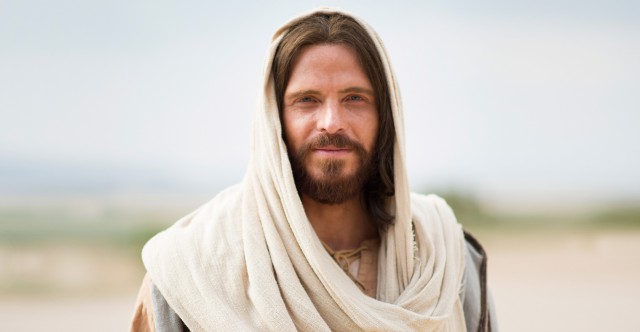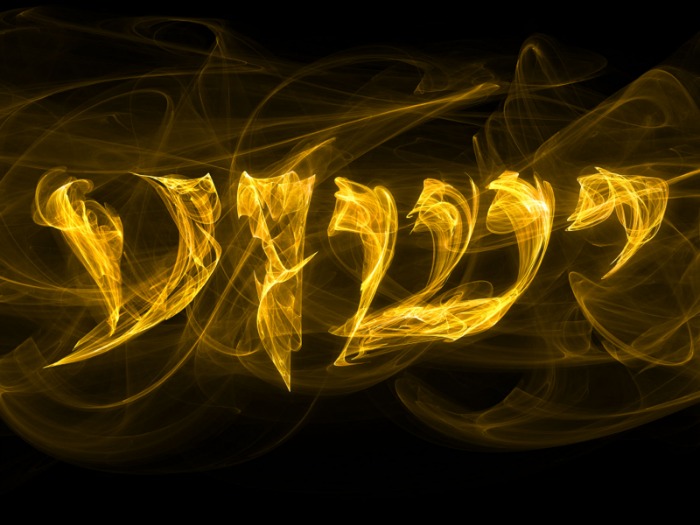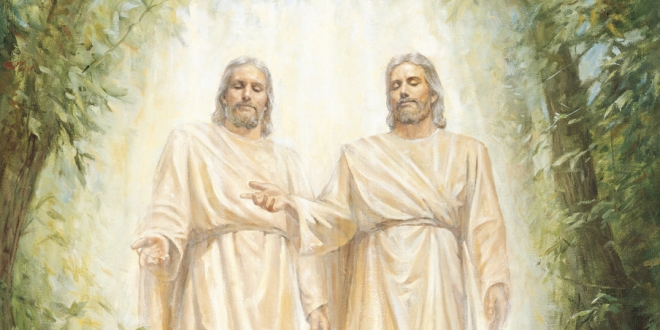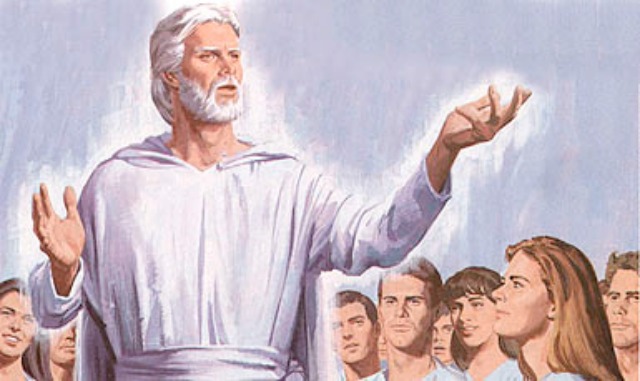Question
Dear Gramps:
I am a bit confused when I was told that according to the teaching of the Mormon Church, Jehovah of the Old Testament is the same person as Jesus of the New Testament. If so, who delivered the Ten Commandments to Moses? Elohim or Jehovah? Who turned Lot’s wife into a pillar of salt? Where can I look for more discussion of this Mormon teaching? Thank you.
Shane
Answer
Dear Shane,
The source to look for additional information on the identity of Jesus Christ as Jehovah is in the Bible itself. Let’s go through a few scriptures that I believe will point out who is whom. We will start with Exodus 6:2-3.
And God spake unto Moses, and said unto him, I am the LORD:
And I appeared unto Abraham, unto Isaac, and unto Jacob, by the name of God Almighty, but by my name JEHOVAH was I not known to them.
So Jehovah is not God the Father. But He represents God the Father to the people of the earth. Whenever the word LORD (all upper case) is mentioned in the Old Testament, it is translated from the Hebrew word, Yhovah. It is my understanding that the word Jehovah is a compound of the Hebrew verbs was, is and will be–in other words, the Eternal One.
The Hebrew, Elohim, is the plural for the word, God, meaning the Gods. But it is taken as the name of the Father in Heaven. Now, translating that first phrase above from the Hebrew, it would read, And Elohim spake unto Moses, and said unto him, I am Yhovah. I wasn’t really Elohim who was speaking, as the scripture says, it was Jehovah.. The next verse explains that Jehovah appeared to the Patriarchs as El Shadday–El (the singular of Elohim) and Shadday– meaning Almighty or the Most Powerful, implying God the Father, but by his name Jehovah, or the Eternal One, he was not known to them. The above is given to differentiate Jehovah from God the Father, or Elohim.
Now we will find an Old Testament scripture that identifies Jehovah with Jesus Christ– Zechariah 12:8-10.
8 In that day shall the LORD defend the inhabitants of Jerusalem; and he that is feeble among them at that day shall be as David; and the house of David shall be as God, as the angel of the LORD before them.
9 And it shall come to pass in that day, that I will seek to destroy all the nations that come against Jerusalem.
10 And I will pour upon the house of David, and upon the inhabitants of Jerusalem, the spirit of grace and of supplications: and they shall look upon me whom they have pierced, and they shall mourn for him, as one mourneth for his only son, and shall be in bitterness for him, as one that is in bitterness for his first born.
In verse 8 the LORD, or Jehovah, is speaking. In verses 9 and 10 the pronoun, I, refers to the same LORD, or Jehovah– I will seek to destroy and I will pout out upon the house of David
Then comes the key–
they shall look upon me [Jehovah] whom they have pierced and they shall mourn for him, as one mourneth for his only son, and shall be in bitterness for him, as one that is in bitterness for his first born.
Clearly, Jehovah is stating that it is HE the only begotten and the first born son of the Father, even Jesus Christ, that shall be pierced and shall be mourned for and for whom they shall be in bitterness.
Gramps







